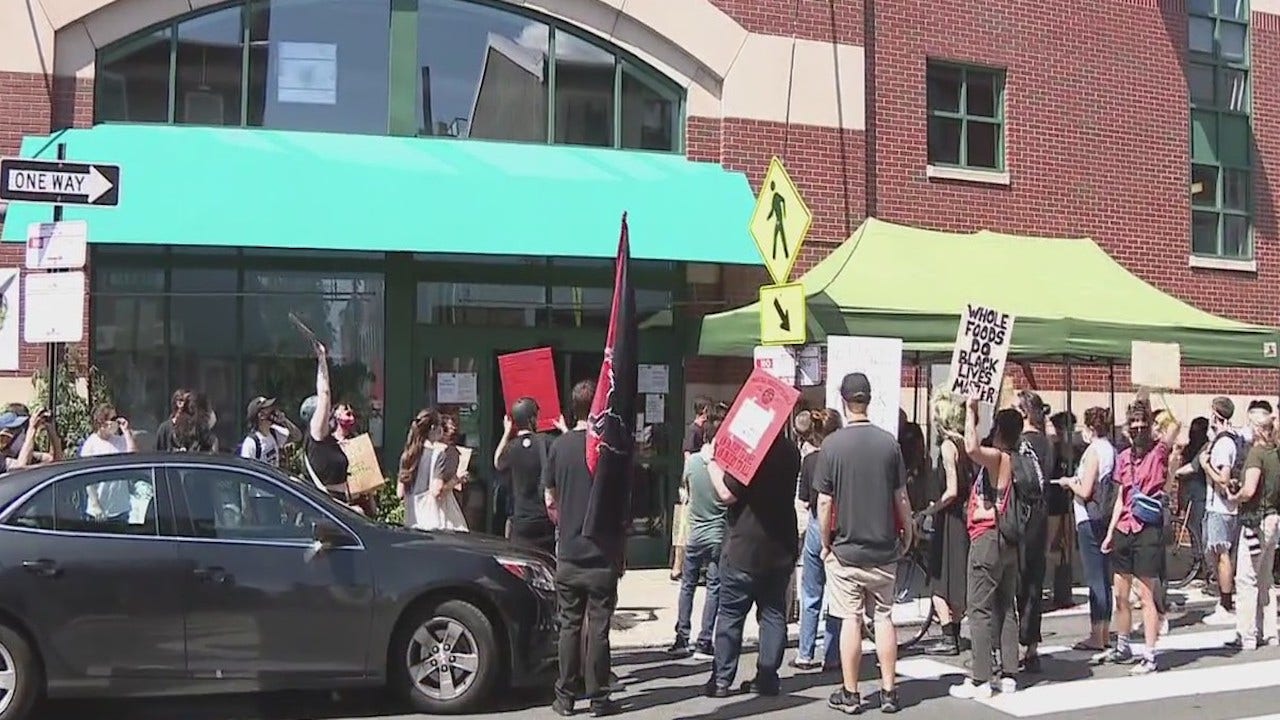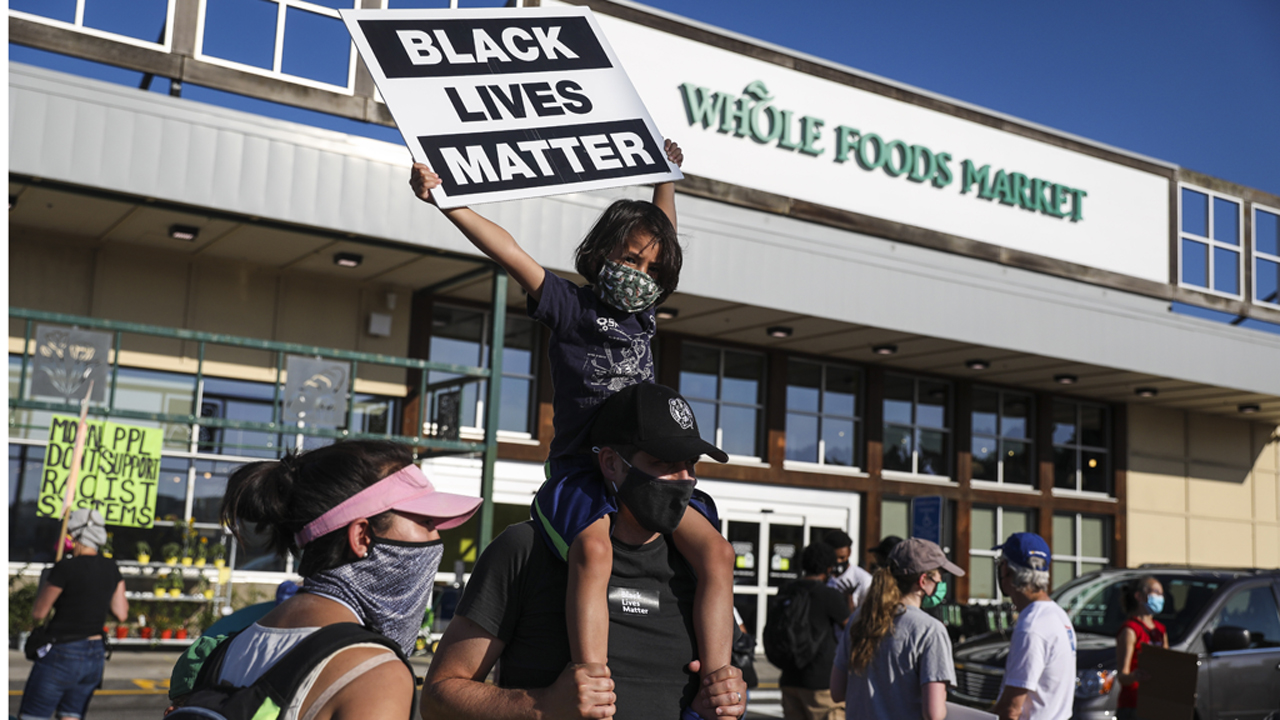Whole Foods: The Giant Grocery Chain Under Fire
Whole Foods, one of the most prominent organic grocery chains in the United States, is currently facing intense scrutiny over allegations of racism within its operations. These claims have sparked widespread conversations about racial inequality in corporate America and the responsibilities of major brands to address systemic issues head-on. As we dig deeper, it becomes clear that this isn't just about one company—it’s about the broader culture of corporate accountability.
Federal Judge Dismisses Key Claims in Employee Lawsuit
In Boston, a federal judge recently dismissed most of the claims in a lawsuit filed by Whole Foods employees who accused the supermarket chain of discrimination and retaliation. The employees claimed they were penalized for wearing Black Lives Matter face coverings at work. This decision highlights the legal complexities surrounding workplace policies and employee rights, especially during a time when social justice movements are at the forefront of public discourse.
Backlash Amidst Social Justice Movements
During the late spring and summer of 2020, the United States was swept up in Black Lives Matter protests following the tragic murder of George Floyd. In response to these events, Whole Foods team members across various stores began wearing Black Lives Matter masks to show solidarity with the movement. However, this decision didn’t sit well with management, leading to a clash between employee activism and corporate policy.
Read also:Giancarlo Stantons Battle With Bad Advice The Inside Story
A Legal Victory for Workers?
An appeals court recently revived a lawsuit alleging that Whole Foods illegally fired a worker who refused to remove her "Black Lives Matter" facemask and spoke out against racism within the company. This development signals a potential shift in how courts view employee activism and corporate restrictions on free expression. It’s a reminder that companies must tread carefully when balancing business interests with employees’ rights to advocate for justice.
Promotion Policies Under Scrutiny
Longtime Manager Files Federal Lawsuit
A longtime—and current—Whole Foods manager in Philadelphia has taken legal action against the company, claiming that its promotion policy routinely discriminates against Black employees. This lawsuit adds another layer to the ongoing debate about racial bias in corporate settings. If proven true, it could have far-reaching implications for how companies approach diversity and inclusion in their hiring and promotion practices.
Predictions of a Swift Resolution
A federal judge in Boston predicted a swift resolution to a proposed nationwide class-action lawsuit accusing Whole Foods of racial bias by disciplining workers who wore Black Lives Matter masks. While this may bring some closure to affected employees, it also raises questions about whether such resolutions truly address the root causes of systemic racism within corporate structures.
Controversial Decisions Spark Public Outcry
Yellow Fever Restaurant Sparks Backlash
Whole Foods faced significant backlash after announcing that one of its California locations would host a restaurant with a name linked to Asian fetishism. Despite posting a brief statement condemning racism, the company’s actions seemed contradictory to its public stance. The situation underscores the importance of cultural sensitivity in branding decisions and highlights the disconnect between corporate messaging and real-world impact.
Shoplifting Accusations and Racial Profiling
In another controversial incident, Whole Foods faced backlash after accusing a man in Los Angeles of shoplifting. The man, who is Black, went viral on TikTok after sharing his experience of being wrongfully accused of stealing $200 worth of groceries. This incident reignited discussions about racial profiling in retail settings and the need for companies to prioritize fair treatment of all customers.
Why Naming Matters
Whole Foods’ decision to name a new restaurant after a viral disease was met with widespread criticism. Both fans and critics of the grocery chain struggled to defend such an insensitive choice. This bizarre move serves as a cautionary tale for businesses about the importance of thoughtful branding and public perception.
Read also:Ralph Macchio Talks About The Potential My Cousin Vinny Reboot
Whole Foods: A Divisive Brand
Whole Foods has long been a polarizing chain among shoppers. While some appreciate its commitment to organic and sustainable products, others criticize its high prices and perceived elitism. However, recent controversies have made it difficult for even its staunchest supporters to overlook the company’s missteps. As Whole Foods navigates these challenges, it must decide whether to prioritize profit or people—and how to rebuild trust with its employees and customers alike.
A Message from the CEOs
In an effort to address growing concerns, Whole Foods released a video featuring its CEOs, Walter Robb and John Mackey, responding to backlash following an investigation into the company’s practices. While this step shows acknowledgment of the issues, many employees and customers remain skeptical about the sincerity of the company’s efforts to create meaningful change.
Looking Ahead: What’s Next for Whole Foods?
As Whole Foods continues to face scrutiny over racial bias, discrimination, and insensitive decisions, the path forward is anything but clear. The company must take bold steps to address these concerns, from revisiting its promotion policies to fostering a more inclusive workplace culture. Only then can it hope to regain the trust of its employees, customers, and the broader community.


